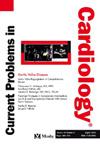The future of cardiology: Integrating single-cell transcriptomics with multi-omics for enhanced cardiac disease insights
IF 3
3区 医学
Q2 CARDIAC & CARDIOVASCULAR SYSTEMS
引用次数: 0
Abstract
Recent advancements in single-cell transcriptome sequencing (scRNA-seq) have revolutionized our understanding of cellular heterogeneity in cardiovascular diseases, enabling the identification of novel therapeutic targets. This technology allows for high-resolution analysis of gene expression at the single-cell level, revealing the complex dynamics of human heart cell development and the diverse roles of cardiac cell types in health and disease. Despite its transformative potential, current applications of scRNA-seq face limitations, including challenges in data integration and the need for comprehensive multi-omic approaches to fully elucidate the mechanisms underlying cardiovascular pathologies. This review highlights the significant insights gained from scRNA-seq studies in the mammalian heart, emphasizing the importance of integrating spatial transcriptomics and other omics technologies to enhance our understanding of cardiac biology. Furthermore, it addresses the critical research gaps in the field, particularly in the context of personalized medicine and the need for improved methodologies to analyze rare cell populations. By exploring these challenges and opportunities, this review aims to pave the way for innovative diagnostic and therapeutic strategies that can ultimately improve outcomes for patients with cardiovascular diseases.
心脏病学的未来:整合单细胞转录组学和多组学以增强对心脏病的认识。
单细胞转录组测序(scRNA-seq)的最新进展彻底改变了我们对心血管疾病细胞异质性的理解,使我们能够识别新的治疗靶点。这项技术允许在单细胞水平上对基因表达进行高分辨率分析,揭示人类心脏细胞发育的复杂动力学以及心脏细胞类型在健康和疾病中的不同作用。尽管scRNA-seq具有变革潜力,但目前的应用仍面临局限性,包括数据集成方面的挑战,以及需要全面的多组学方法来充分阐明心血管病理的潜在机制。这篇综述强调了从哺乳动物心脏scRNA-seq研究中获得的重要见解,强调了整合空间转录组学和其他组学技术对增强我们对心脏生物学的理解的重要性。此外,它还解决了该领域的关键研究空白,特别是在个性化医疗和需要改进分析稀有细胞群的方法的背景下。通过探索这些挑战和机遇,本综述旨在为创新的诊断和治疗策略铺平道路,最终改善心血管疾病患者的预后。
本文章由计算机程序翻译,如有差异,请以英文原文为准。
求助全文
约1分钟内获得全文
求助全文
来源期刊

Current Problems in Cardiology
医学-心血管系统
CiteScore
4.80
自引率
2.40%
发文量
392
审稿时长
6 days
期刊介绍:
Under the editorial leadership of noted cardiologist Dr. Hector O. Ventura, Current Problems in Cardiology provides focused, comprehensive coverage of important clinical topics in cardiology. Each monthly issues, addresses a selected clinical problem or condition, including pathophysiology, invasive and noninvasive diagnosis, drug therapy, surgical management, and rehabilitation; or explores the clinical applications of a diagnostic modality or a particular category of drugs. Critical commentary from the distinguished editorial board accompanies each monograph, providing readers with additional insights. An extensive bibliography in each issue saves hours of library research.
 求助内容:
求助内容: 应助结果提醒方式:
应助结果提醒方式:


